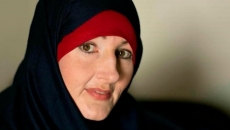OTTAWA - The Liberal government is moving toward providing dental-care insurance directly to qualifying Canadians, rather than working with provinces and territories to bolster existing coverage.
We’re also moving forward to provide kids with dental care, and help low-income renters with a $500 top-up.
— Liberal Party (@liberal_party) October 28, 2022
Learn more:https://t.co/ivM1Yr5Tcu
That will involve hiring an external company to process claims for the new stand-alone insurance program, Health Canada officials told The Canadian Press. On Friday, the Procurement Department invited companies with experience in those claims to apply for pre-qualification.
Health Canada officials, who gave a briefing on the condition they not be named publicly, said that would help the government refine the program before hiring a company to do the work.
They are still working on the details, but the officials said the dental-care coverage in the new program will closely reflect the benefits programs for First Nations, Inuit, refugees and veterans, who fall within federal jurisdiction for health care.
The Liberals committed to some form of federal dental-care coverage for low-income Canadians in its March confidence and supply agreement with the New Democrats.
The deal would see the opposition party support the minority government on key votes through to 2025, in exchange for some NDP priorities.
Initially, the NDP expected there would be a full-fledged insurance program in place by the end of 2022 for children under the age of 12 with a household income below $90,000.
This fall, the tight timeline prompted the Liberals and NDP to compromise and create aninterim benefit program, which would allow the government to issue cheques to families who qualify while work continues on the federal insurance program.
Bill C-31, which would give children with families who make less than $90,000 a year as much as $650 per child to care for their teeth, passed third reading in the House of Commons on Thursday night. Officials said they hope to be able to launch the benefit on Dec. 1, but the timing depends on how long it takes to get through the Senate and receive royal assent.
"This is a first step, an interim benefit," Health Minister Jean-Yves Duclos said of Bill C-31 during his appearance at the House of Commons health committee on Monday.
"There will be a second program … that will be better suited to the dental-health care that other Canadians, including the younger children will need overtime: that includes seniors, people with disabilities, people with relatively low or middle income ranges."
NDP Leader Jagmeet Singh has said he wants to see that program in place by the end of 2023, which is when the confidence and supply agreement said everyone under the age of 18, seniors and people living with disabilities would qualify for coverage.
The deal said full implementation would come by 2025.
The Health Canada officials said the timing of the new program will depend on how the procurement process unfolds.






